
The debate about whether or not to add ice to wine has been going on for ages and still manages to spark passionate opinions. While some experts hold firm to traditional etiquette, others acknowledge the role of personal preference in this seemingly simple act. Let’s see what the experts have to say.
Matter of Respect

Sommeliers, the wine professionals trained in the art of wine service and appreciation, generally frown upon adding ice to wine. Their primary concern lies in the dilution effect. Ice melts, watering down the wine and altering the meticulously crafted flavor profile intended by the winemaker.
Formal Settings and Cultural Norms

Etiquette experts generally advise against using ice in wine, particularly in formal settings. Adding ice can be perceived as disrespectful to the winemaker’s work, the established wine culture, and the efforts put into creating a balanced and complex beverage.
Wine Type Matters

While experts generally discourage adding ice, they acknowledge that certain wine types might benefit from a slight chill. Young, fruit-forward white wines or rosés with naturally high acidity can handle a slight temperature drop without significant flavor distortion. However, adding ice cubes is generally discouraged, even in these cases.
Personal Preference Above All

Despite the expert opinions, adding ice ultimately comes down to personal preference. If you genuinely enjoy the taste of chilled wine with a touch of ice, there’s no shame in indulging, regardless of what etiquette dictates. Your enjoyment of the beverage is paramount.
Alternative Chilling Methods
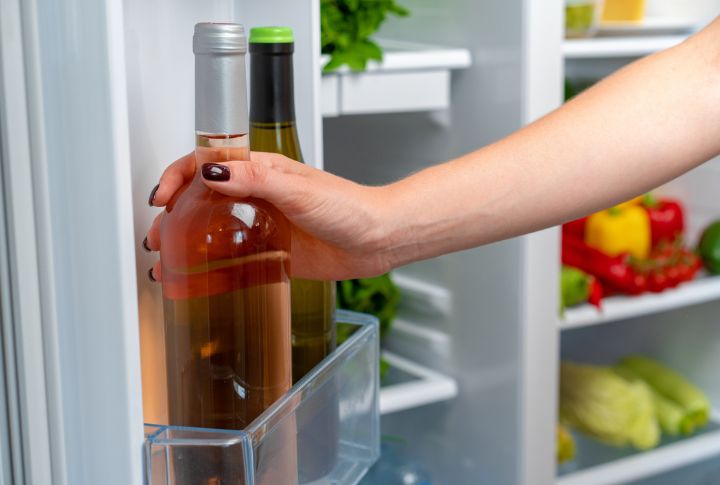
Instead of relying on ice for a refreshing experience, experts recommend alternative chilling methods. Pre-chilling the wine in a refrigerator or using a wine chiller allows you to achieve a desirable temperature without diluting it and altering its intended flavor profile.
Cultural Adaptation and Acceptance
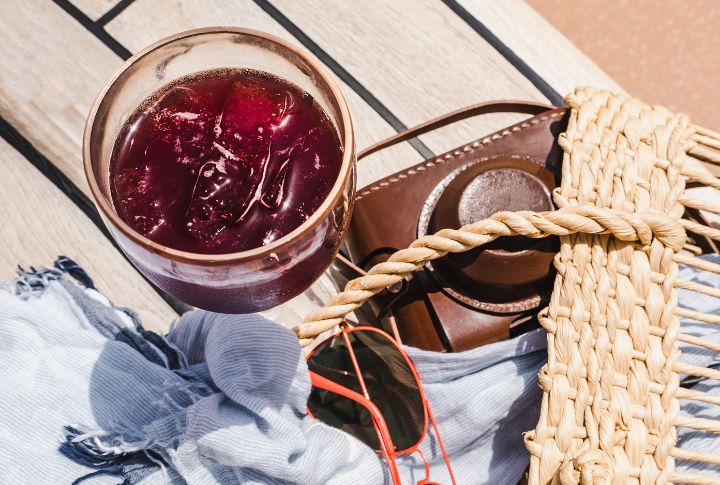
The cultural acceptance of adding ice to wine can vary geographically. It becomes more common and socially acceptable in warmer climates with high ambient temperatures. It’s a matter of personal preference and adaptation to the environment.
Quality Matters
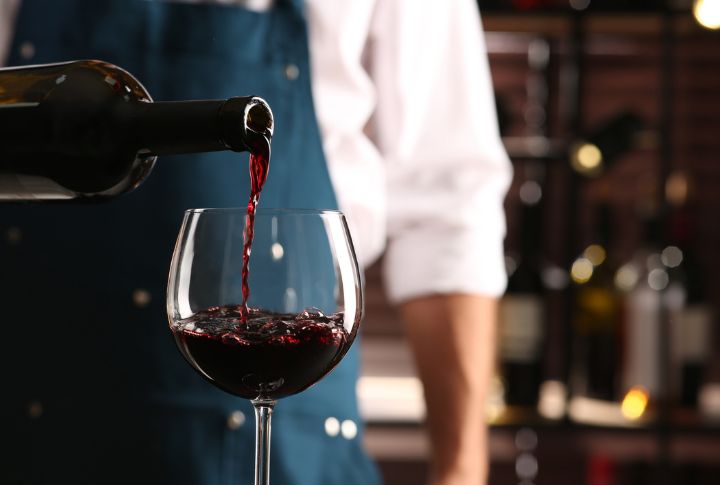
Experts strongly advise against adding ice to high-quality wines. The more sophisticated the wine, the greater the potential for flavor distortion caused by ice dilution. These wines are crafted with detailed care, and their intended flavor profiles are best appreciated without the interference of added water.
Minimizing Dilution
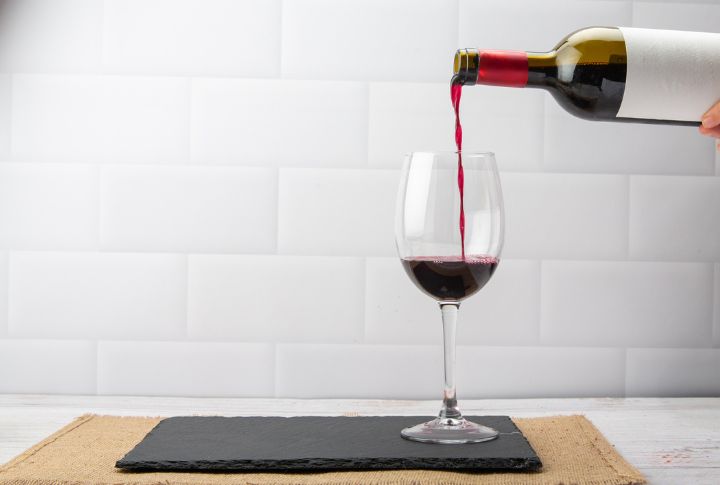
If you choose to add ice, opting for crushed ice over large cubes is a slightly better option. The smaller surface area of crushed ice minimizes the amount of water released as it melts, slowing down the dilution process and preserving the wine’s flavor more effectively.
Frozen Grapes
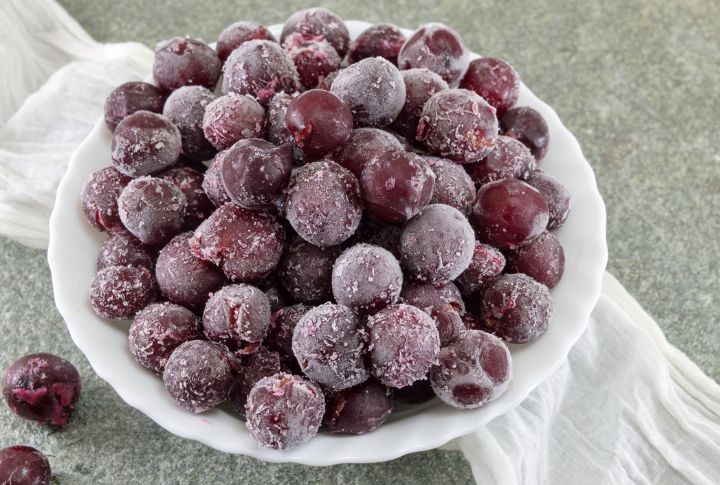
A creative alternative to ice cubes is freezing grapes. These frozen grapes chill the wine without diluting it, and they add a subtle fruity flavor that can complement certain types of wine, notably lighter whites and rosés.
Sparkling Wine Exception

Sparkling wines like prosecco or champagne are often served chilled and can sometimes benefit from a single ice cube. The added ice helps maintain a refreshing temperature throughout the drinking experience without significantly altering the flavor profile due to the wine’s inherent effervescence.
Context Matters

The setting plays a role in determining the appropriateness of adding ice. In casual gatherings, picnics, or on a scorching hot summer day, the social context might make adding ice to your wine more acceptable and even expected by some.
Experimentation is Key to Preferences

Don’t be afraid to experiment and discover what you enjoy most. Sometimes, the best way to appreciate wine is to find what pleases your palate. Experiment with different temperatures and methods of chilling to discover your personal preference.
Respectful Consumption

Regardless of your personal preference, be mindful of others at the table. Avoid adding ice to a shared bottle without asking for permission from your companions. Respecting the choices of others is a key aspect of enjoying wine in a social setting.
Open Communication
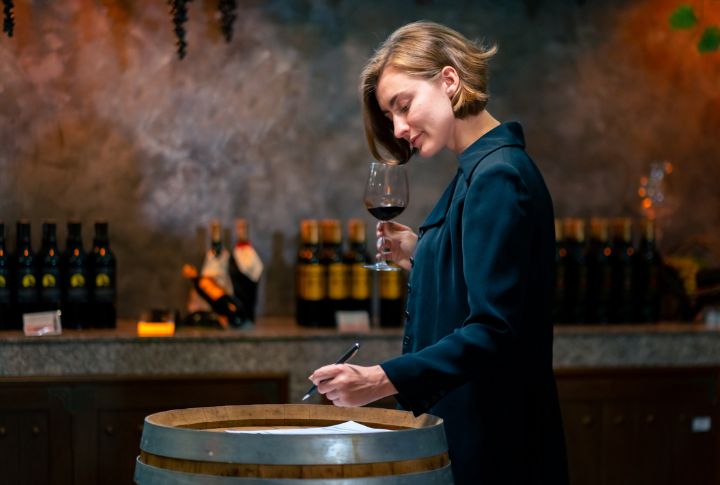
If you’re unsure how to enjoy a particular wine, don’t hesitate to ask your host or a sommelier for their recommendation. Their expertise can help you appreciate the etiquette and ensure you experience the wine the way the winemaker intended.
Prioritizing Your Pleasure
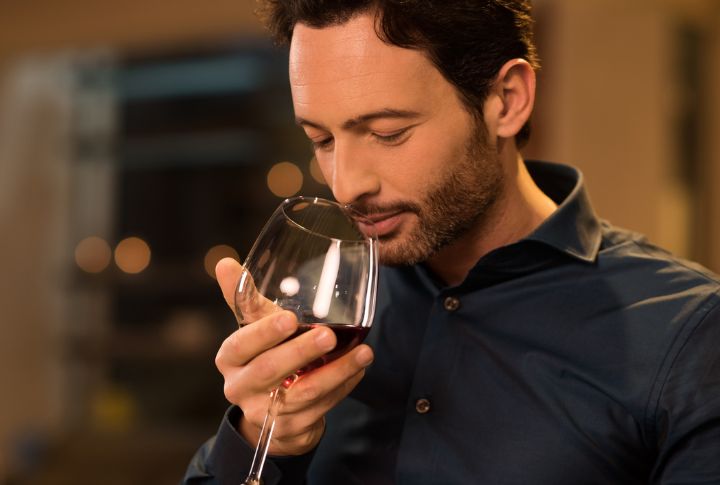
Remember, the most important aspect of wine consumption is your enjoyment. Don’t let strict etiquette rules dictate your experience. While understanding expert opinions and cultural norms is valuable, the best way to appreciate wine is to find what brings you the most pleasure.
